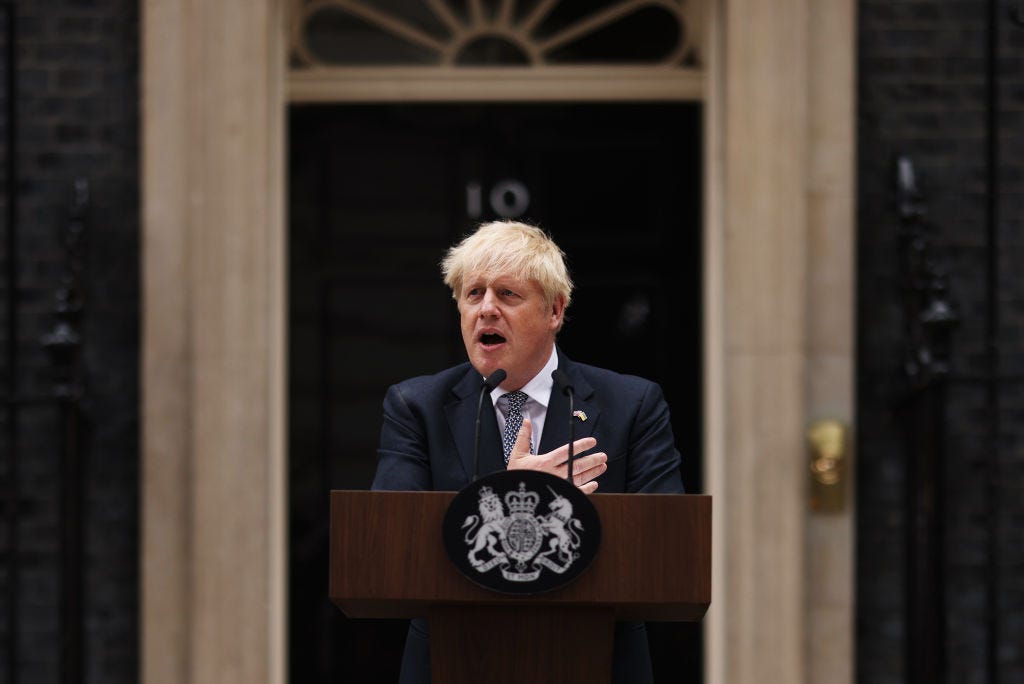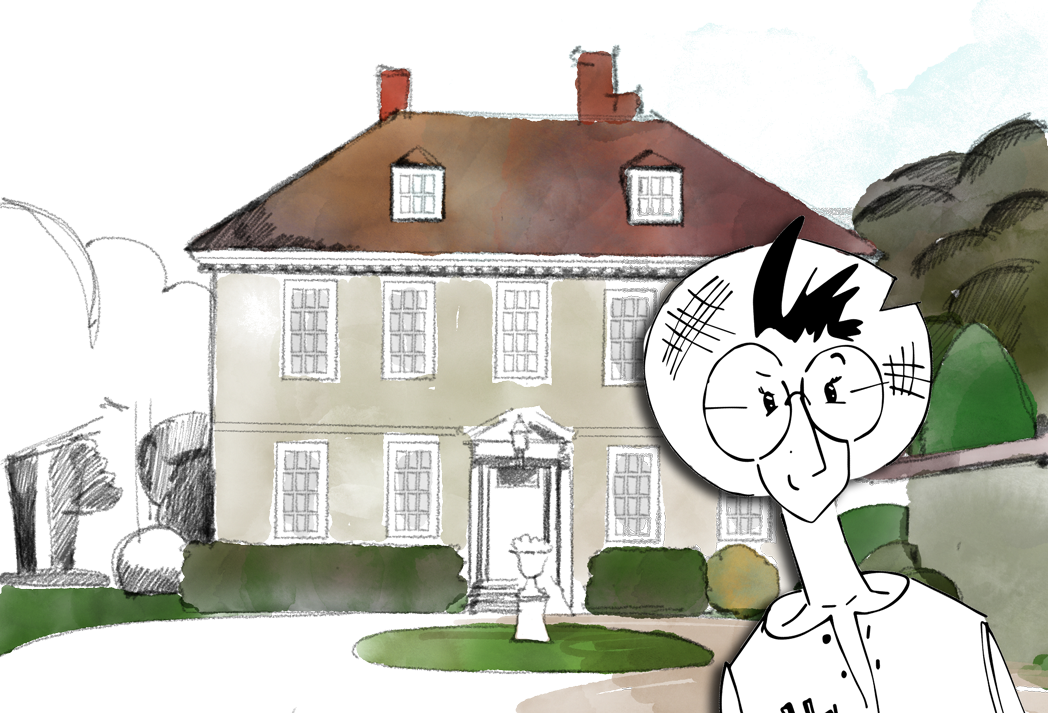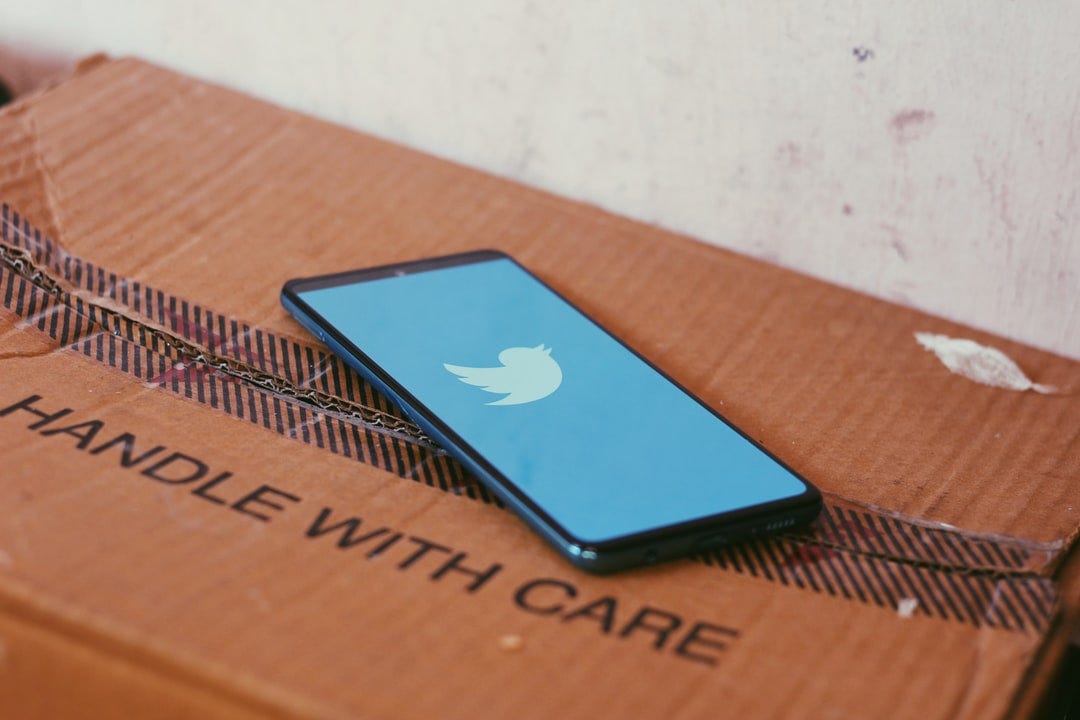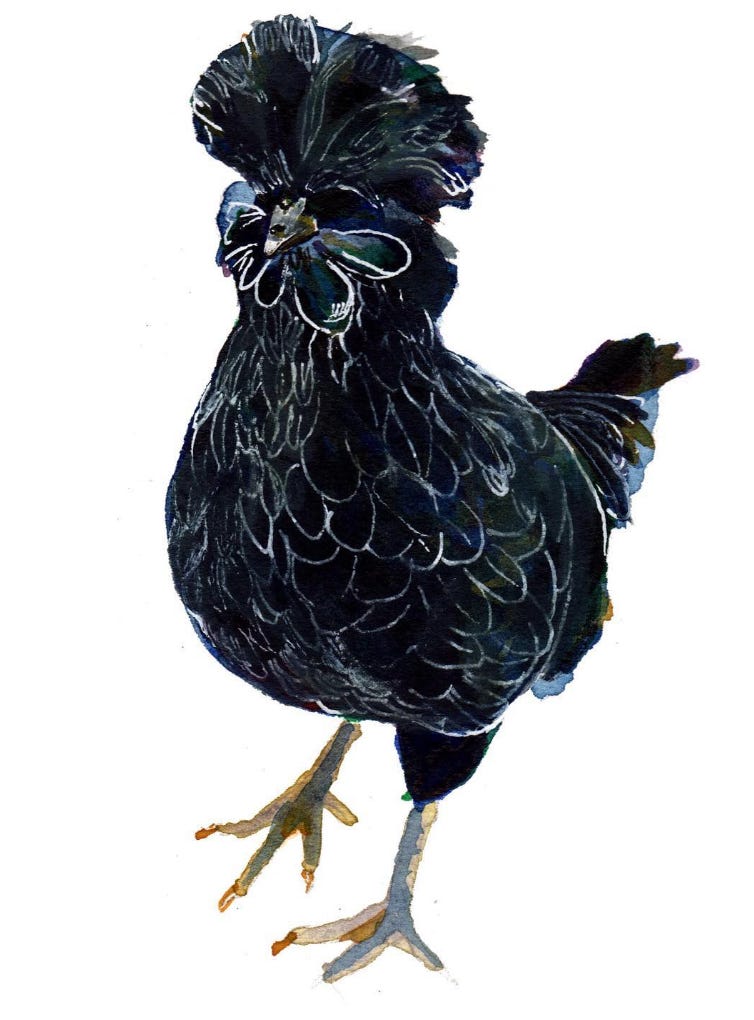Substack Reads: Rethinking the recession; the end of Boris Johnson, plus: are literary awards over?
Hello and welcome to your weekly roundup of the best reads and happenings across Substack. As summer hits its stride and the world looks for something to read, we thought we’d share some of the writing that has got us thinking over the past week.
As ever, we’d also love to hear what you’re reading at the moment too. So if there are writers, podcasters, or artists on Substack whose work you think should be more widely known, let us know in the comments section at the bottom.
Enjoy!
CELEBRITY
Meghan Markle makes her (political) move
How a recent interview may reveal the Duchess of Sussex’s real ambitions
—Jane Barr in From Berkshire to Buckingham
I predicted almost from the start that Meghan was not able to remain apolitical, nor did she want to try. I think that is a primary reason she flamed out as a working royal so quickly. Meghan took up the title and the role with no intention of playing by the rules. She was always going to push the envelope until her activity spilled over into the political arena.
When Meghan and Harry left the fold, they “vowed to uphold the values of the Queen,” which everyone took to primarily mean that, because the Queen did not strip them of their HRH status, the couple would remain apolitical, as Her Majesty has done for the entirety of her more than 90 years. Even so, I doubted they’d be able to hold to that pledge.
TECHNOLOGY
The shady world of “pig-butchering” scams
If you’ve ever had a wrong-number text, you could be opening yourself up to one of the world’s most cunning new shakedowns, linked to crypto deposit cons and even human trafficking, as Max Read investigates
A few months ago I received the following WhatsApp message from a number I didn’t recognize:
Even though it was clear this message was the lead-in to a swindle of some kind, I had to pause and admire the craft that went into its composition. Like everyone else, I get scam text come-ons pretty frequently, and they’re always poorly pitched and low-energy. In contrast, this text opened up a rich world, animated by detail and alive with mystery. I didn’t care about packages missing their intended destinations, or Bitcoin investing advice, or whatever scammers usually texted me about, but I was interested in Tony: How many charity galas did he go to, anyway? And why hadn’t he seen his/my unknown interlocutor in such a long time? Before I reported the number to WhatsApp, I took a screenshot of the message to better remember it.
LITERATURE
The complicated business of literary prizes
As one of the literary world’s most respected prizes, the Costa Book Awards, shutters after half a century, multi-award-winning author Tim Lott reflects on what that means for writers—and their egos
—Tim Lott in Tim Lott’s Writing Boot Camp
The resulting novel, ‘White City Blue,’ won the Whitbread First Novel prize, and I competed against Seamus Heaney, Rose Tremain, JK Rowling, and Jacqueline Wilson for Book of the Year in a live televised ceremony in which I felt like a literary star. I didn’t win the prize, but I didn’t expect to. It was one of the best nights of my life.
Nothing could stop me now. My next novel, ‘Rumours of a Hurricane,’ was shortlisted for the Whitbread Book of the Year and the Encore Award. It won neither. It was meant to be a shoo-in for the Booker longlist. Nothing. And it got a scathing review on the arts programme ‘Newsnight Review’. Jonathan Miller on Radio Four called it ‘soap opera’.
My ego began to deflate—painfully. In fact, I had a massive snit—absurd though it seems to me now. No prizes! What the hell was going on? Why wasn’t my genius being universally acknowledged? It was an outrage.
POLITICS
The fall of Boris Johnson
Nothing befitted Britain’s Prime Minister so much as the humiliating manner of his departure
—Philip Stephens in Inside Out with Philip Stephens
History, of course, will record Johnson’s role as the leader of Britain’s break with the EU. He is the politician who claimed to have “got Brexit done”. It’s curious to say the least that a politician should ask for credit for the most serious act of self-harm in Britain’s peacetime history.
We have also learned since, of course, that it is far from “done”. Johnson’s attempt to renege on the deal he struck with Brussels has put in jeopardy the fragile peace in Northern Ireland. Elsewhere, voters are now paying the economic price. Trade volumes with Europe have fallen sharply. So too has inward investment. Growth has slowed as businesses have been hit at once by the barriers to trade with Europe and the absence in Britain of European workers.
READER RECOMMENDS
In search of the perfect home
Architect Jo Petroni reflects on what makes the ideal place to settle
—Jo Petroni in Jo’s Epistolary, recommended by Courtney Cook
We have been changing places every year now for seven years. We have experienced some of the most scenic places in the world. From Greek paradises to luxurious holiday homes in Provence with a pool and authentic rural French chestnut forests. Each time we were leaving one place, we were—OK, I was—convinced we can’t get any better than this. That any new place we get to will be a downgrade from the one before. That we’ve reached our peak.
I’m the anxious type. The overthinker. The fatalist. And each new transition like this is an exercise in loosening the fuck up. More mindfully put, an exercise in letting go. And opening yourself up to the future, with all of its magical possibilities. And it works! I swear to you, every time. Loosening the grip we have on things, letting go of our need for control, is key to things flowing the way they are supposed to.
If the wonderful lady with a cat and a pool nearby wasn’t the one, she just wasn’t. If the farm with fluffy donkeys (fluffy donkeys!) in the mountains already found a sitter, it wasn’t meant to be. The place that is waiting for us is out there and, to get to it, we need to learn to let go of the others.
ECONOMY
The vibecession is coming
Are we manifesting a recession?
—Kyla Scanlon in her newsletter
How You Feel compounds into How Everyone Feels, and that is consumer sentiment. As I have written about before, consumer sentiment is everything because consumer spending is such an important component of GDP growth.
If people have an experience (say, living through the 2008 recession) and evidence (home prices skyrocketing) that might shape some of their expectations—“wow, another unprecedented event to live through,” which shapes their perception (things suck) and their interpretation of the future (things will continue to suck)—that shapes their narrative, which can shape reality.
So when people are feeling bad (which they are right now), they might pull back on some aspects of spending—which we have seen. Inflation is the bogeyman in the room.
PSYCHOLOGY
When silence is golden
Words you can mute on Twitter that will make you infinitely smarter
—Rob Henderson in his newsletter
If you rely on Twitter for political information, you are being informed by pundits (and bots) residing within 2.2 percent of the population. This small group tends to be the most politically extreme.
Reading political news makes you dumber. But reading political tweets lowers your IQ even more.
Reviewing the perception gap study, it was nice to get some empirical backing for something I’ve long practiced: muting words on Twitter.
My initial decision to mute words on Twitter was not to become smarter—that was just a fortunate side effect.
I mainly did it because people tend to sink to lower versions of themselves whenever they speak about political topics on social media.
If someone is going to discuss a contentious political issue, I’d rather read their essay, paper, or book than their tweet. On social media, the desire for validation often overshadows the desire for clarity or truth.
FOOD
The cake of summer has arrived
It’s got strawberries. It’s got cream. And it’s going to make your houseguests very happy
—Carolina Gelen in SCRAPS
Today I’m sharing with you an easy cake recipe I enjoy making during the summer. Its charm comes from its simplicity: a tender, velvety yellow cake, soaked in syrup, topped with freshly whipped cream and strawberries (or any other fresh berry).
RESILIENCE
Why we choose to survive
How the death of a beloved pet chicken made writer and cartoonist Sophie Lucido Johnson question the bigger picture
—Sophie Lucido Johnson in You Are Doing A Good Enough Job
It wasn’t just that Wendy died. Chickens die. In fact, I recommend getting chickens because they teach you about death, and love, and letting go. That’s about tied with “eggs” for me on the list of “reasons to keep chickens.” It was how Wendy died. It was that she had been attacked and then eaten. It was how scary and mangled and broken it all looked. It was too allegorical, maybe.
Substack Reads is a weekly roundup of writing, ideas, art, and audio from the world of Substack. Posts are recommended by staff and readers, and curated and edited from Substack’s U.K. outpost with writer Hannah Ray and editor Farrah Storr.
Got a Substack post to recommend? Tell us about it in the comments.















I enjoy Substack. If anything gets me to sit down and read it’s Substack.
I would like to recommend two writers to you:
Alison writes about her visual impairment using a months of the year framework in the following post: https://alisonburnis.substack.com/p/ghost-images
Rebecca's experiences with life, including getting lost, are witty and funny as hell: https://rebeccaholden.substack.com/